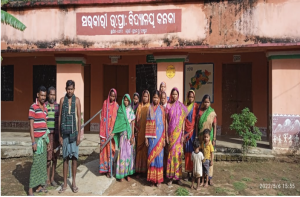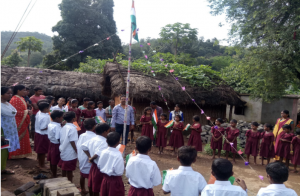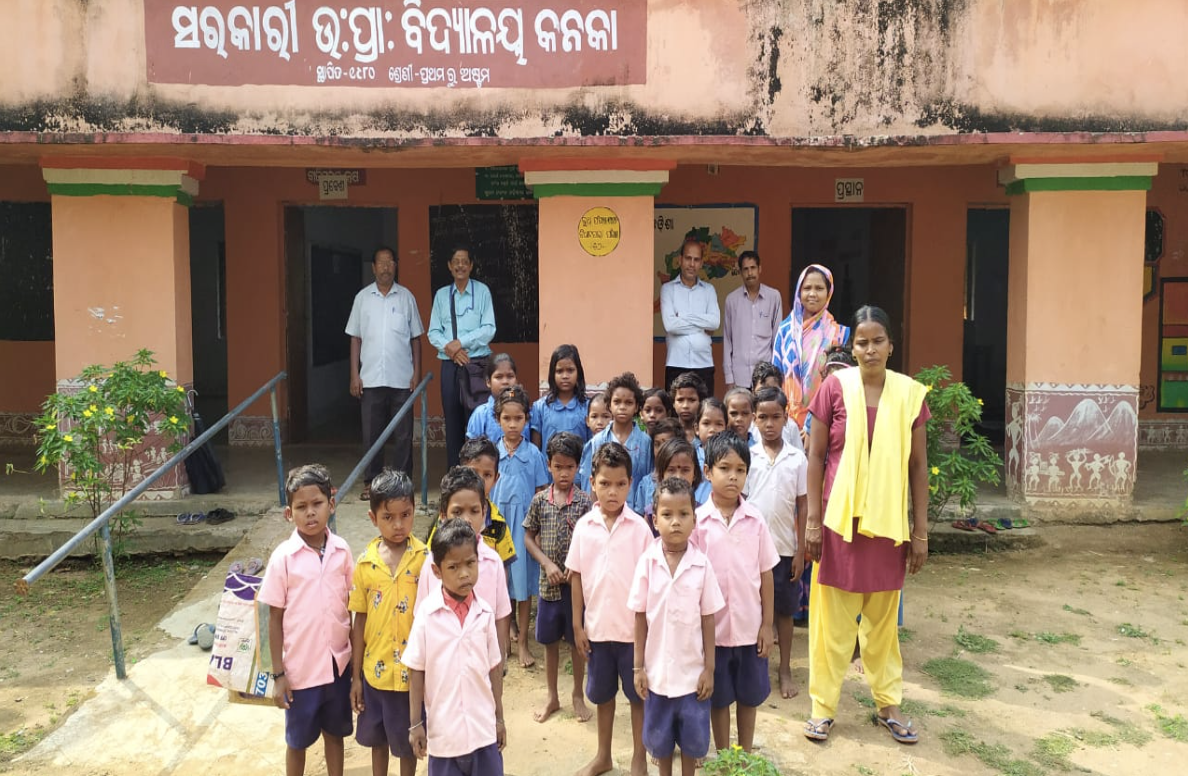ILP & Rural Education: Outreach in Tribal Areas of Odisha
By Suyash Nigam
ILP along with its partner organizations in Odisha have been undertaking various programmes and initiatives to uplift the socio-economic conditions of previously unreached communities.
Outreach in Kalipoi, Jhargadiasahi, Jagannathpur and Kukupangi
Kalipoi, Jhargadiasahi, Jagannathpur and Kukupangi are underdeveloped villages located in hills and forests. The inhabitants of these villages are mostly engaged in farming, fishing or manual labor work. The villages lack proper road infrastructure and students have to go through unpaved roads which run across the middle of a forest, frequented with wild animals. Many children have to travel for 3-4kms daily to attend schools in neighboring villages.
Most of these students are first generation school goers. The families are unaware about the benefits of literacy and quality education and are skeptical about sending their children to schools. As schools have been mostly closed over the past 2 years due to the pandemic, school dropouts and irregular attendance has only aggravated the situation.
ILP’s staff have been relentless in visiting parents and convincing them that it’s in the best interest of their children to attend school. Team ILP conducted workshops for children in the village called ‘SISUSABHA’ and through playful activities motivated children to attend school regularly. Team ILP also encouraged parents to enroll their children in residential Government schools, as boarding school solves the problem of daily commute and ensures that there is no gap in their education.
Outreach in Baguli, Kukupangi and Kanaka
These three villages are located in remote areas of Odisha and are inhabited by around 100 households. There is barely any infrastructure in these villages and families mostly live in shed houses they constructed. Due to the presence of wildlife these villages are not ideally poised for cultivation and inhabitants have to commute 3-4kms daily to find work in neighboring villages.
Baguli got its first primary school through the help of a local ILP project and Government recently in 2013. Kukupangi has a Anganwadi center and school for learning but the locals rarely send their children to these. The same story is true for Kanaka where children from a young age are roped in for field and house work.

Team ILP has been providing training to grassroot leaders in these villages; Anganwadi committees and Janch committee members are trained for better functioning. ILP is also involved with interacting with parents and earning the trust of the local community; after the involvement of ILP Anganwadi committees have been functioning smoothly and are on track to recuperate from the damage caused by the pandemic. Furthermore, ILP has also conducted troubleshooting sessions with the headmasters of these schools and helped them identify and mitigate problems faced by them currently. These projects have helped impact the lives of more than 150 children between the ages of 6-14.
Outreach in tribal communities for higher education
Higher education in most rural tribal communities is a privilege. Most students come from a background of penurious financial conditions. On top of this many of them have very little awareness and interest about available educational options after school. They usually have very little support from their families for higher education.
Ganeswar club’s staff (ILP’s partner NGO) personally counsel both the students and their families. Their staff is well acquainted with the social condition of the community. The situation is aggravated for girl students as their parents would rather have them married off than spend time and money on their higher education. The staff members were able to successfully persuade parents of two such girl students, and both of them now attend college.

Kanjijaharan: A journey from disrupted childhood to mainstream education
Kanjiharan is a small village in northern Odisha inhabited by around 24 tribal households. The livelihood of the residents depend on Podu Chas (a form of shifting cultivation). The yield in a particular season is dependent on the agro-climatic conditions. The district has bare minimum infrastructure and lacks basic amenities like proper road network, supply of electricity and water etc and is a hotbed for Naxal activity. Furthermore, due to lack of education the community is subjected to exploitation by middlemen. These socio-economic conditions have kept the community in a vicious cycle of penury.
UAC (another partner NGO of ILP) took up the challenge of a formal education programme for all the children. The mobilization pulsated the community to accept education as a means of joining the mainstream society.
An impactful illustration of the combined efforts of UAC and ILP is the upliftment of the Dehury family. Sangeeta Dehury, a 15 year old girl, is now studying in class IX; her elder brother Sidhanta Dehury is pursuing vocational training at an ITI and their younger sister is a student at class VI. Their parents make ends meet through gathering and shifting cultivation, they never expected that their children could be part of mainstream education, but through sustained efforts of the organizations this is now a reality.
In total through these bridge centers 39 children have gone to school, and 7 of them have completed matriculation. 2 are continuing college education and 1 of them is studying in ITI. In total all children between the ages of 6-20 are either in school or have completed high school; this is a remarkable turnaround for what used to be a community devoid of any access to formal education.
